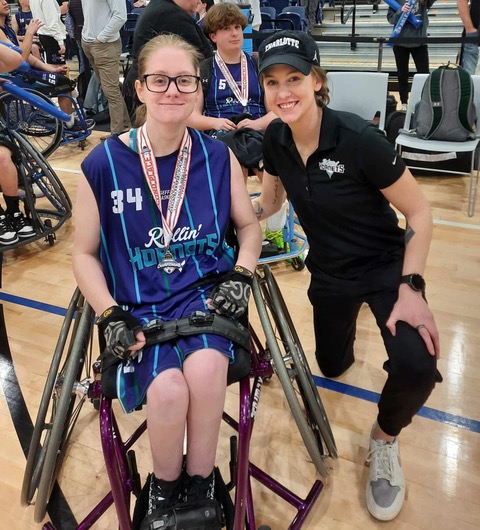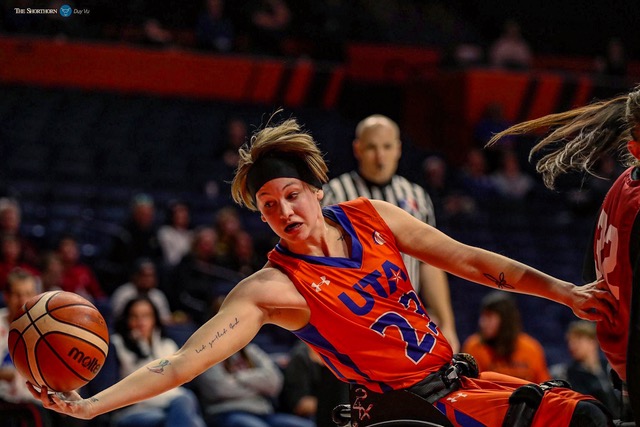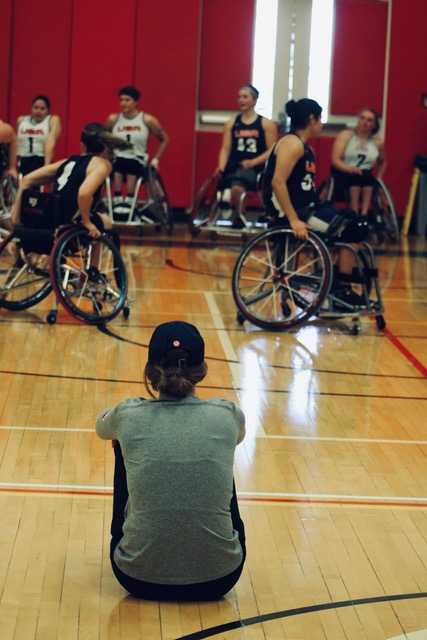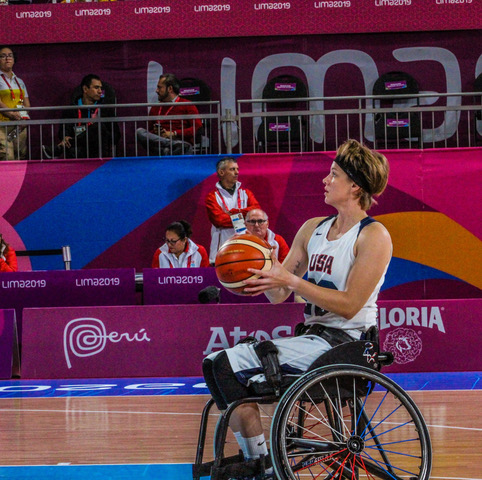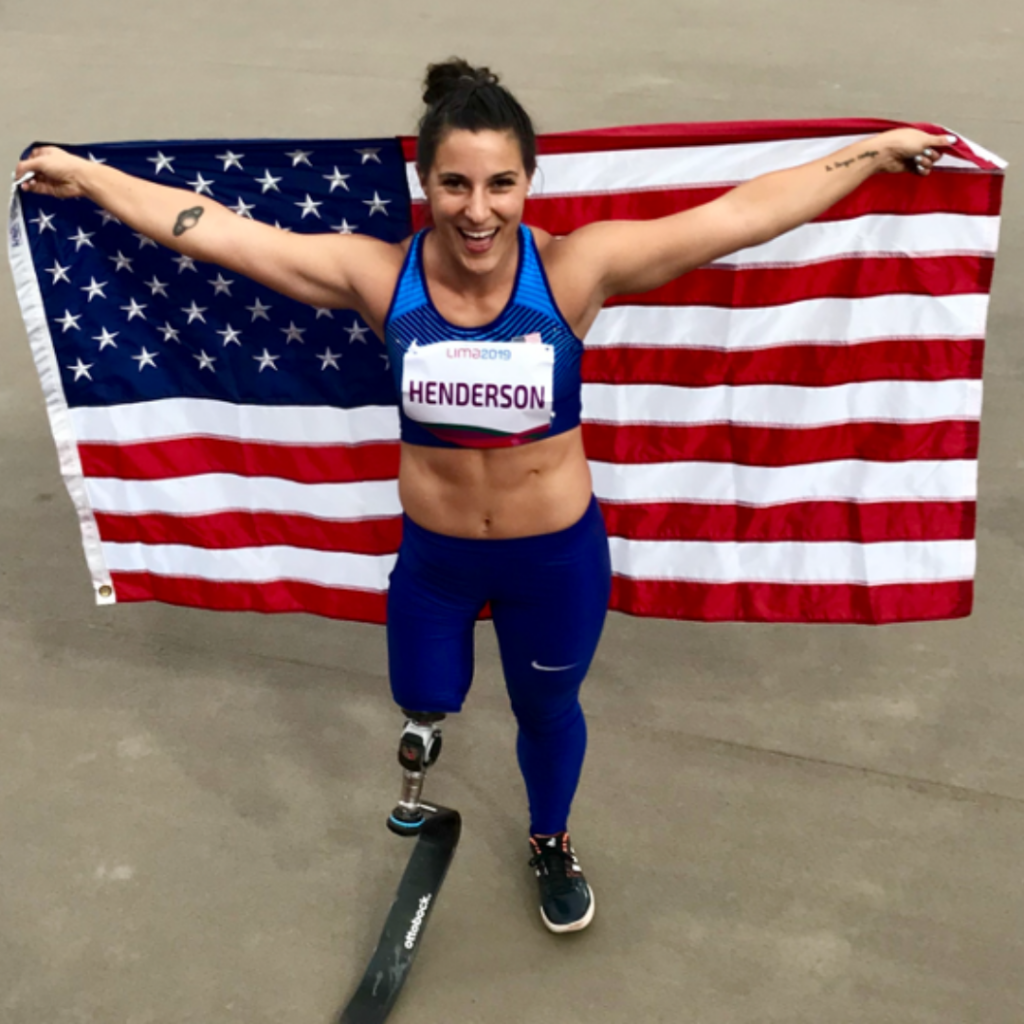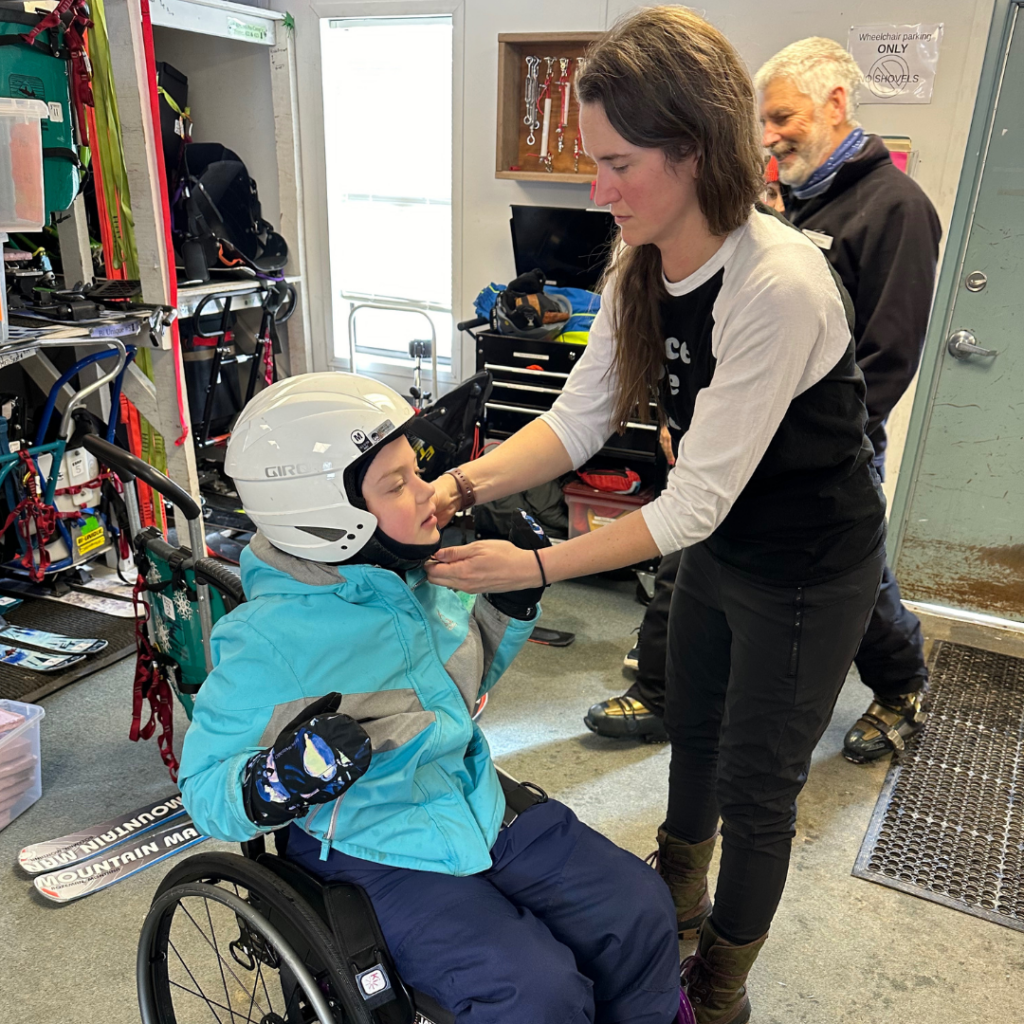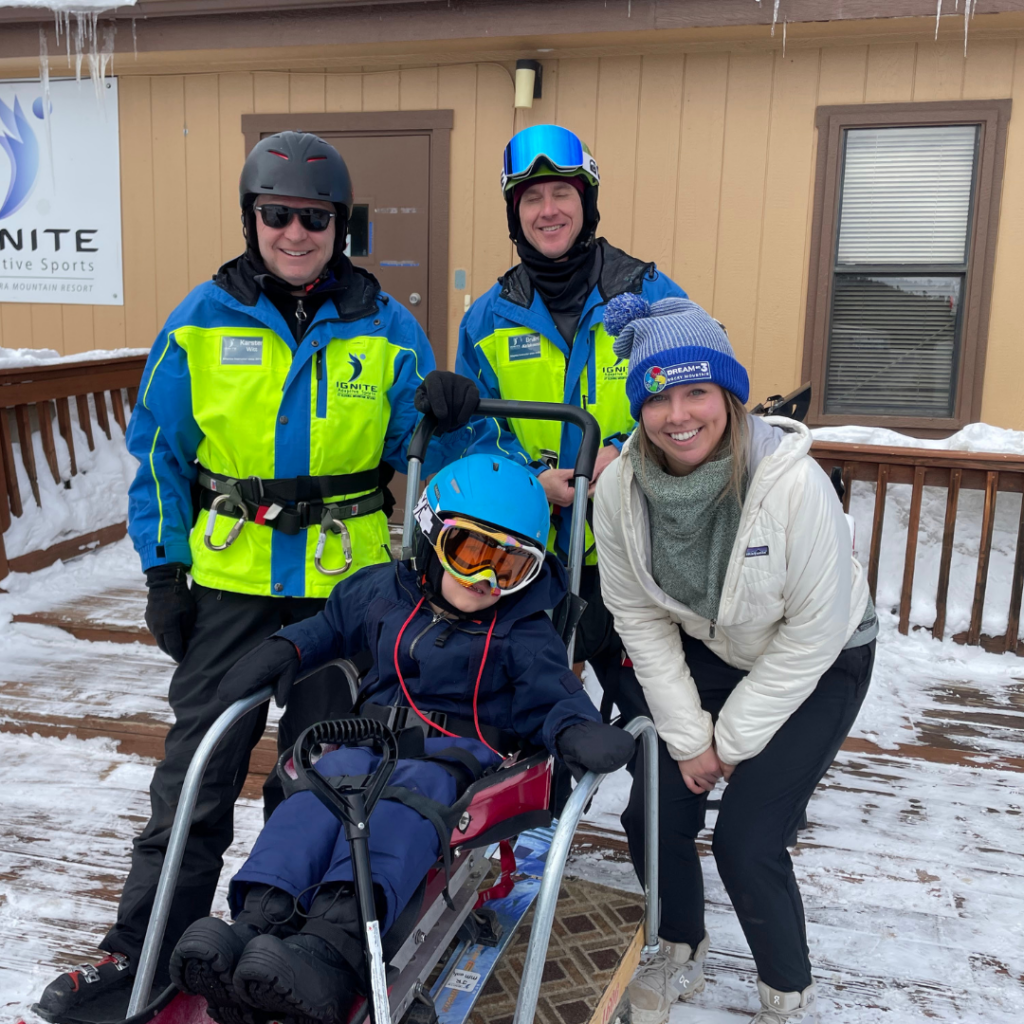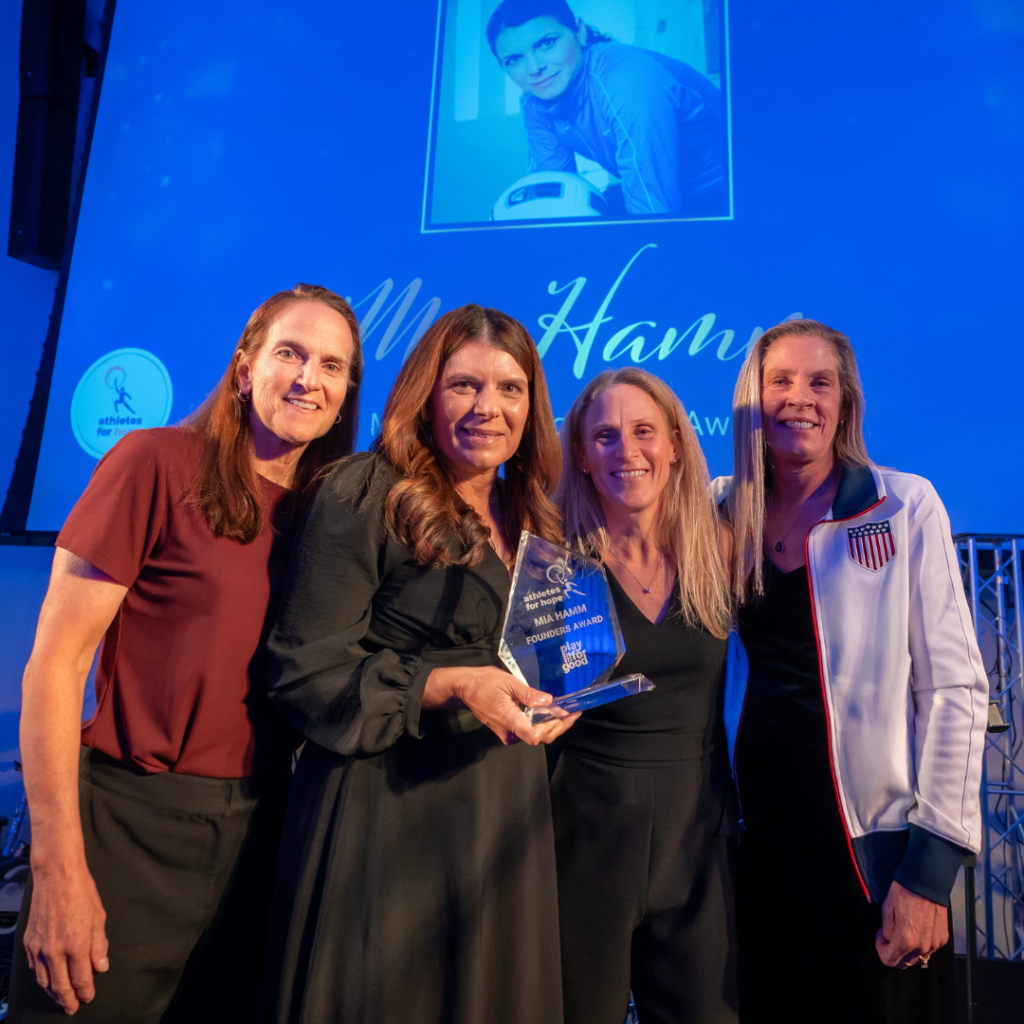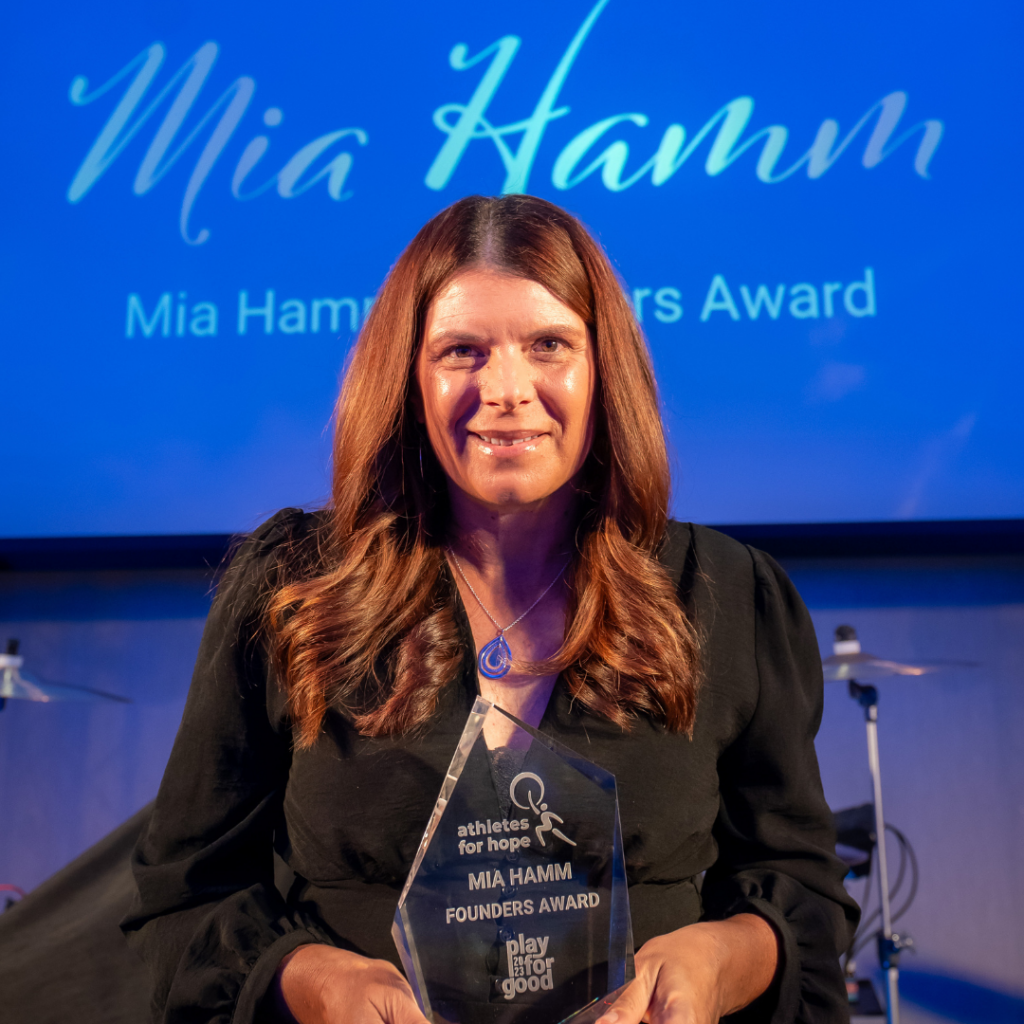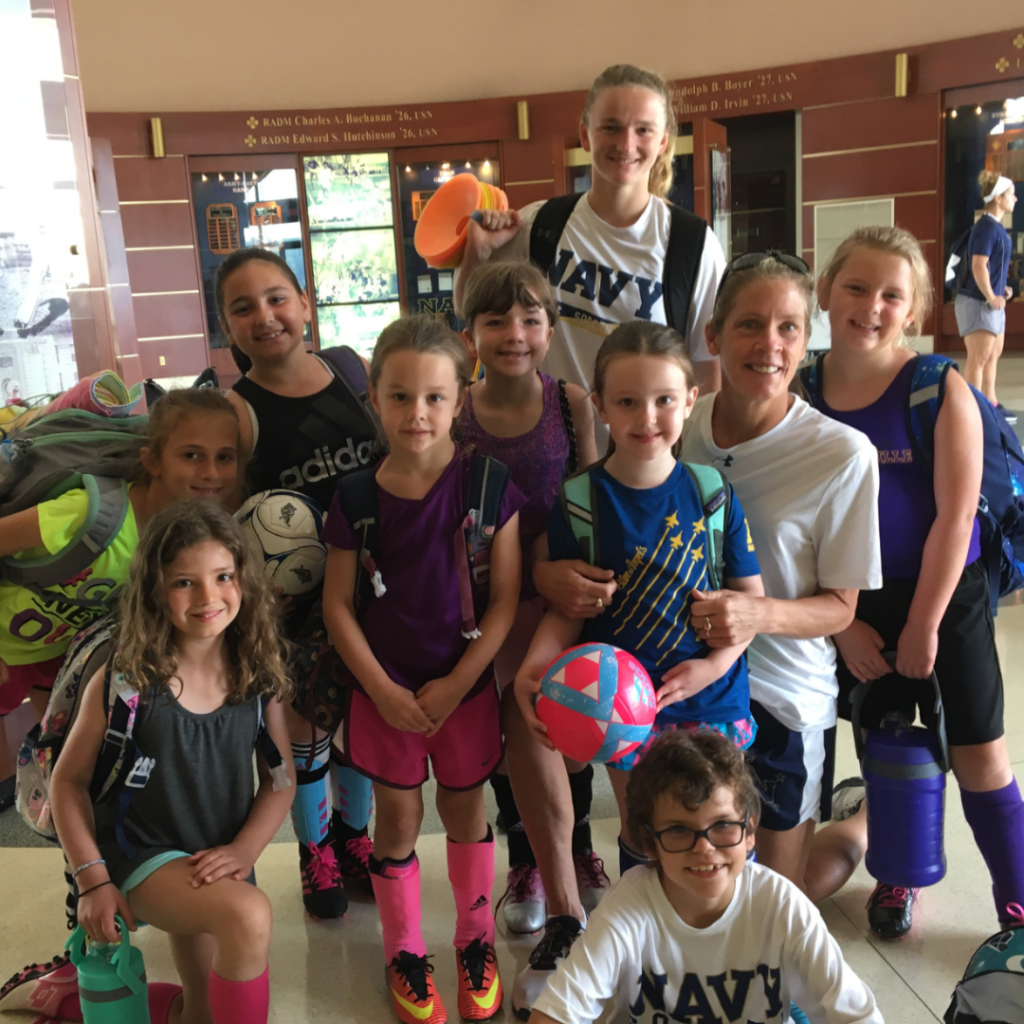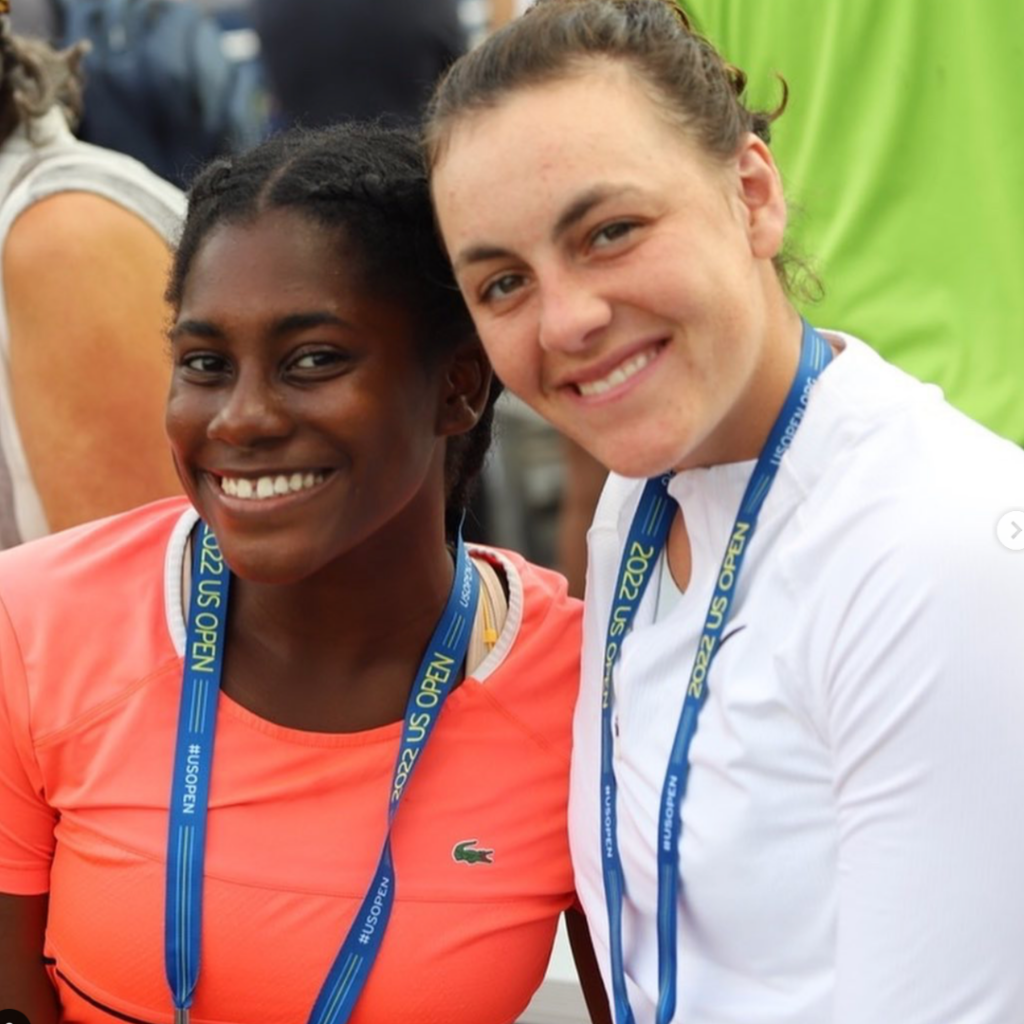Brad Stuver, a goalkeeper for Austin FC, and his wife Ashley Stuver, play a crucial role in the Austin, Texas community giving back through the Laundry Project, Equality Texas, and Avow. AFH is honored to spotlight Brad and Ashley as they explore their paths, achievements, and philanthropic efforts. While athletes at all levels of sport often contribute their time and energy to communities, what is unique about this amazing couple is their dedication to service, sport and others while cheering each other on in their respective causes.
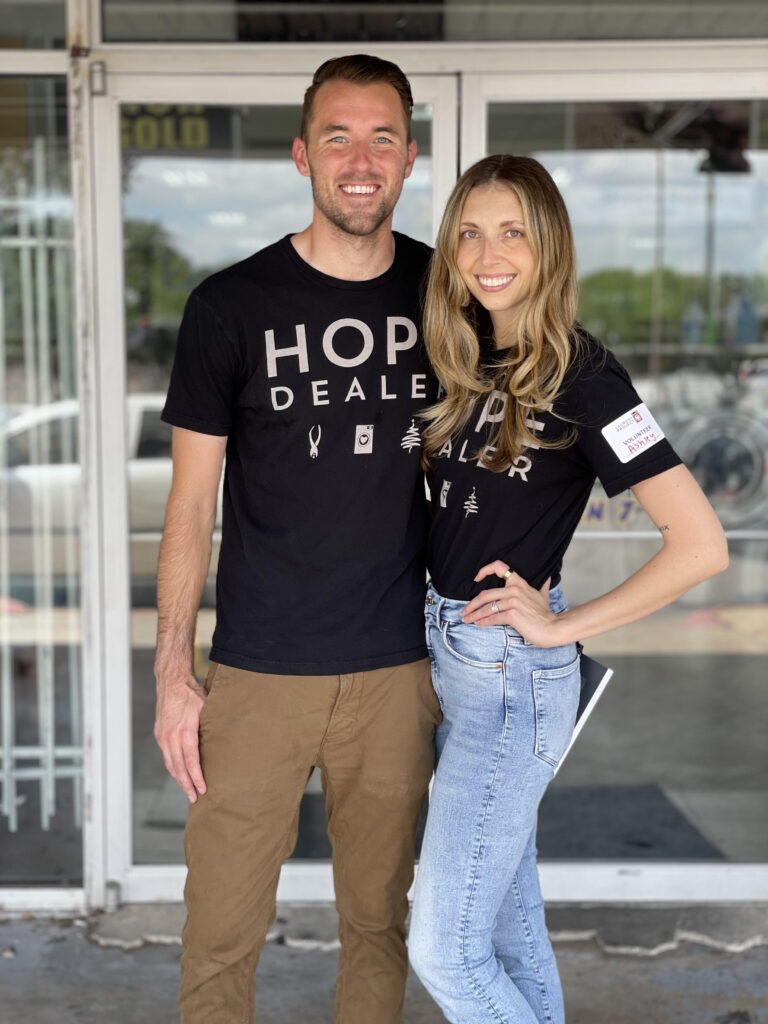
Brad Stuver, the dynamic goalkeeper for Austin FC, has a deeply rooted connection to soccer that began early in his childhood. Inspired by his older brother Ryan, who introduced him to the sport, Brad’s love for soccer grew as he played in the yard, often as the target of playful shots. This early exposure set the stage for a lifelong passion. Although Brad explored other sports during his formative years, soccer was the one that consistently drew him back, becoming a central part of his life.
Professionally, Brad’s proudest achievement came with the 2022 season when Austin FC made the playoffs for the first time, marking a significant milestone in his career. This accomplishment was a testament to his skills, perseverance, and immense pride for himself and his wife, Ashley. The playoff berth symbolized a culmination of hard work and a shared dream coming to fruition, making it a particularly memorable achievement for Brad. Ashley Stuver also achieved remarkable milestones. Among her most notable achievements is earning a master’s degree in nutrition. While working full-time, pursuing this degree later in life posed significant challenges, but ultimately, completing the program was a proud moment for her. Brad’s philanthropic and community service efforts are all in part with Ashley, making them a hardworking team supporting the Austin and soccer community.
Both Brad and Ashley are deeply committed to giving back to their community, driven by a profound sense of gratitude for the support they’ve received throughout their lives. For Brad, playing soccer professionally is a dream realized, made possible by the communities that have supported him along the way. This gratitude has inspired him to use his platform to give back. Both Brad and Ashley particularly appreciate the vibrant and supportive community in Austin. The couple is motivated by the collective spirit of the city and has engaged in various charitable activities to contribute positively. Their commitment to community service is reflected in several impactful projects they’ve undertaken.
One of the most significant initiatives they’ve been involved in is the Laundry Project in Uvalde, organized in response to the tragic school shooting in 2022. This project provided essential services, including free laundry and school supplies, to the affected community. Partnering with the 4ATX Foundation, Austin FC’s nonprofit, Brad and Ashley were able to make a meaningful difference in a time of need. This project stands out as a poignant example of their dedication to using their platform for good.
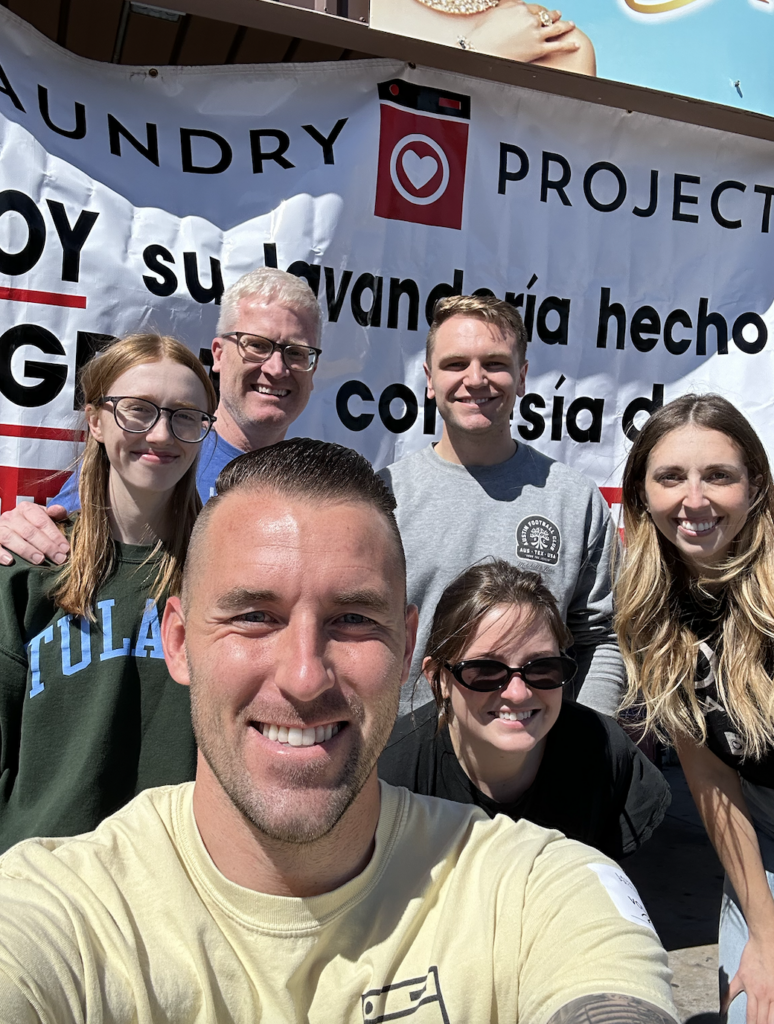
Brad and Ashley’s commitment to community service is rooted in their upbringing. Both come from families that emphasize the importance of being active and giving back to the community. This background has significantly influenced their approach to philanthropy. When they came together, they explored various causes to find those that resonated with their values and had the potential for long-term impact. Ashley’s introduction to the Laundry Project came through a high school friend’s husband, who was involved with the initiative. The idea of bringing the project to Columbus, where they previously lived, marked the beginning of their deeper involvement in community service. Upon moving to Austin, they were thrilled to see the Laundry Project take off and make a significant impact locally.
It wasn’t until they moved to Austin that Brad fully realized the extent of his social media reach and the impact of his platform. Meeting fans and hearing how his posts and interviews resonated with their lives underscored the influence he could wield. Brad’s ability to connect with people on a personal level and address important issues highlighted the power of using one’s platform responsibly.
Balancing a demanding professional schedule with community service requires careful planning. For Brad, managing his time effectively has become crucial, especially as he has taken on a more prominent role with Austin FC. Before joining Austin FC, he had more flexibility in his schedule, yet now, with the demands of being a consistent starter, careful planning is essential. Brad and Ashley work together to align their community activities with their game schedule, ensuring they can contribute meaningfully without compromising Brad’s performance on the field. It is truly a team effort.
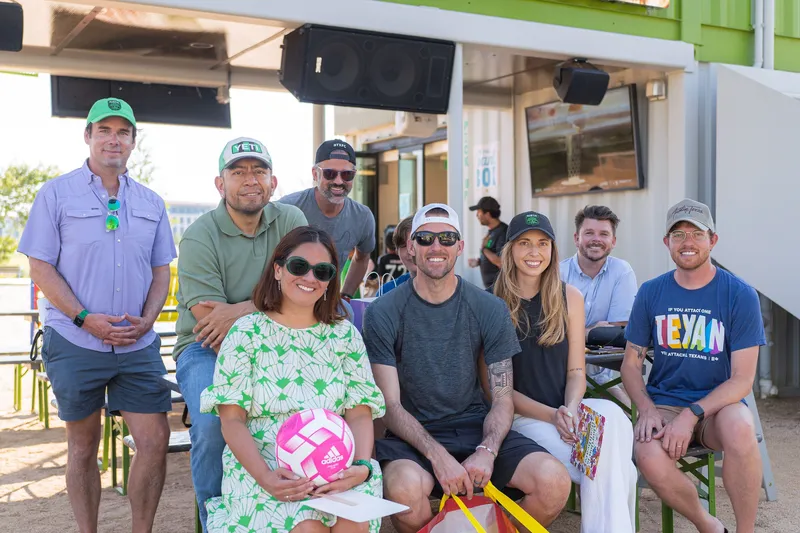
Among their various charitable endeavors, Brad cites the Uvalde Laundry Project as a favorite. The project, which provided essential services and school supplies to a community in crisis, was particularly impactful and rewarding.” For Ashley, the Stuver Social fundraiser, which supports organizations like Avow (where Ashley is on the board) and Equality Texas (where Brad is on the board), stands out.” Additionally, their tour of the Ronald McDonald House provided a powerful reminder of the vital work done by such organizations. Being able to connect with various causes and learn more about their efforts has been crucial.
Brad’s advice for other athletes looking to get involved in giving back is to recognize the power of their voice and platform, no matter the size. He emphasizes that even small actions can have a significant impact. By engaging with their communities and supporting causes, athletes can make a meaningful difference. Brad’s own experience with the Austin FC Verde Program, where he and other players interact with local kids, highlights how even simple acts of presence can be profoundly impactful.
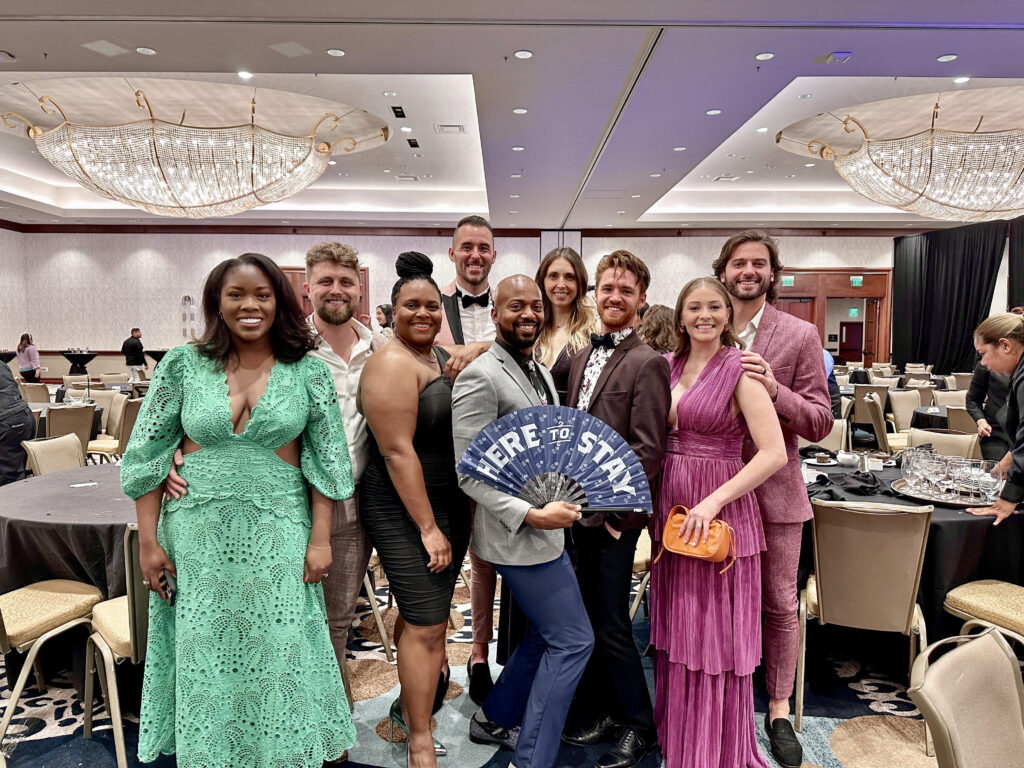
Looking ahead, Brad and Ashley are excited about launching their own nonprofit, the Brad and Ashley Stuver Foundation. This new venture aims to consolidate their philanthropic efforts and leverage their platform to support local nonprofits across Texas. The foundation represents a significant step in their commitment to giving back and reflects their ongoing dedication to making a positive impact on their community. Their commitment to service and others should serve as a strong example to other power sports couples looking to make a profound difference in communities.
Brad and Ashley Stuver’s story is a powerful example of how professional athletes can extend their influence beyond their sport. Through their career achievements and philanthropic efforts, they demonstrate the profound impact of using one’s platform to foster positive change and support those in need. Together, this dynamic team of two is creating long lasting change in the Austin community and beyond.


